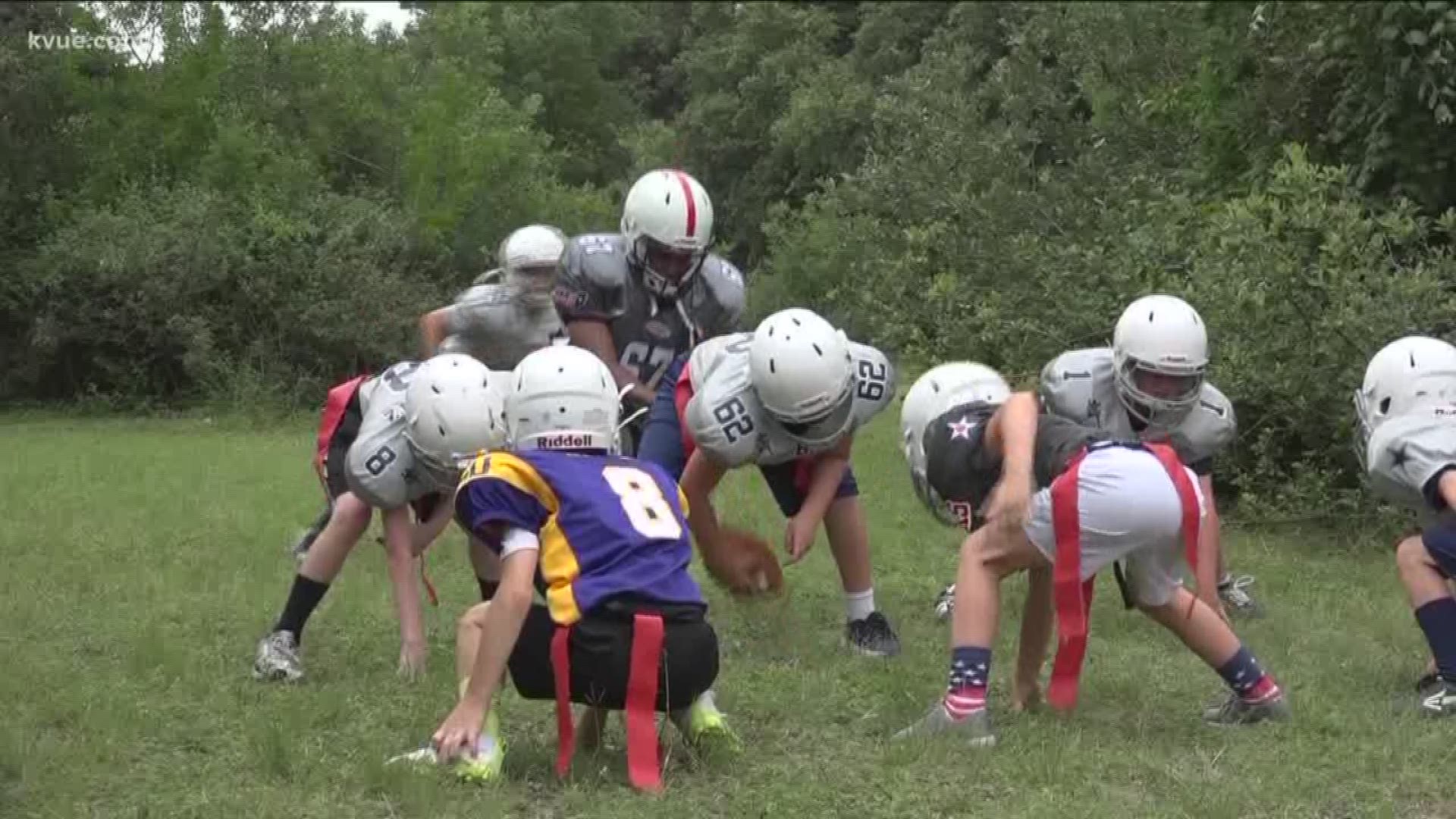AUSTIN, Texas — With the start of the new school year also comes the beginning of new sports seasons, meaning several area students are outside braving the sweltering Central Texas heat.
Whether your student is a football player, cross country runner, band member, cheerleader or anything that involves them being outside this semester, if they're not keeping adequately hydrated or cool, then that could potentially lead to a trip to the doctor.
Dr. Jessica Rankin is a pediatric emergency physician at St. David's Children's Hospital. She said that they've already had some young patients come in due to heat-related injuries and that the majority of those patients are high school athletes.
"August is definitely the worst month. About two-thirds of injuries occur during that month, so that’s definitely the high season and then it just starts to trickle down after that," Rankin explained. "One of the main ways to prevent a more serious heat-related illness is to acclimate your body to the heat. So, when students and athletes are practicing and competing in these sports, they need to start slow and then slowly add on the intensity and the duration of the exercise. More than seven to 14 days is normally how long it takes for somebody to acclimate to exercising in a really hot environment."
The severity of the injuries can go beyond dehydration. Exerting too much energy in the heat without staying cool can lead to some serious cases such as heat exhaustion and heatstroke.
"With a heatstroke, we see temperatures more 104 and 105 and the main differentiation is, with heatstrokes, there are mental status changes. So we become confused, disoriented, aggressive, irritable," explained Rankin. "With heat exhaustion, those are not usually at play. You don’t usually have the mental status changes, but you can still be very warm up to 104 degrees in terms of your body temperature. But you’re gonna feel more nauseated, maybe some vomiting, some abdominal cramping, muscle cramping and a headache. You might not be able to complete the task that you’re doing and might actually pass out."
In addition to staying as cool and hydrated as possible, Dr. Rankin also suggested ice baths as a quick way to cool your body temperature. She also advised that parents and coaches remind their athletes to hydrate often since students bodies' can't handle the heat as well as adults.
"In your younger kids, their physiology is different from an adult body, so they actually don't handle the heat as well. They don't sweat as much and the way they dissipate heat is different in that they have. A smaller blood volume circulating around their body is different, so to transfer the hot heat from the center of their body, the core to the outside to the skin is harder for them," Rankin said. "Also, not unless they're supervised, they're not going to drink as well as an adult would when they're dehydrated. They're just going to play and play and play."
PEOPLE ARE ALSO READING:

